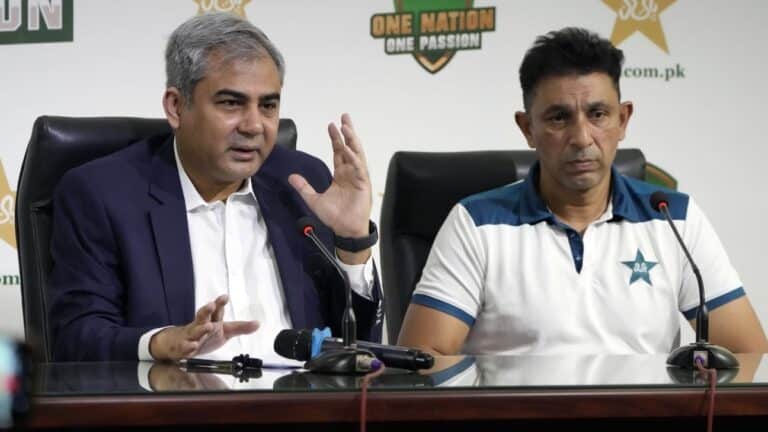
Naqvi lamented that the aptitude of Pakistan’s players was “far behind” their peer countries. “Injuries never occur due to physical training,” he said at the press conference that the PCB had organized to announce Pakistan’s new coaches. “People have various theories on how to make players fit. Fitness has never been a focus for Pakistan’s management in the past.
“I am not criticizing anyone who came before me, but I look at the players from the rest of the world. The physical condition of Pakistan’s players is far below that. This is just the beginning, we will have to improve the physical condition even more of the players. If I need to “Bring in fitness experts from all over the world, I will do it.”
This strong defense is in line with the PCB’s desire to maintain the military camp and not worsen the situation. When Rizwan, who retired injured midway through his innings in the third T20I, and Niazi were ruled out of the New Zealand series, the PCB’s official statement did not refer to any injury at all, instead saying that the board had opted to “rest” the duo after seeing their radiology reports.
While it is true that stress or intensive training can lead to fatigue-related muscle injuries, the team management and president seem to believe that fitter players are less likely to suffer these types of injuries, a view that is also supported by in line with conventional sports science. .
The PCB has maintained that any problems detected are short-term and that unavailability is limited to a few days rather than weeks or months. Pakistan are now scheduled to travel to Ireland and England to play 7 T20I matches and announce a preliminary squad for the World Cup before May 1.
The camp was the brainchild of Naqvi, who told the players during the PSL that he organized it to improve their fitness and, in part, to help the players hit bigger sixes. “When I was watching the matches in Lahore, I don’t think any of you hit a six that went into the stands,” he had said. “Every time a six was hit like that, I used to think that a foreign player must have hit it. I asked the board to come up with a plan that would improve the fitness of each player. You will have to put in adequate effort to achieve it.” .
An intensive training regime just a week after the PSL ended in the only window of what would otherwise have been a break caught the eye. Naqvi acknowledged at the time that there were very limited opportunities for such a camp as Pakistan entered it after six months of virtually uninterrupted cricket. Furthermore, the camp coincided with the last phase of Ramzan, a time when culturally most Pakistanis tend to prioritize family or religious activities over work. Its effectiveness was made more challenging by the fact that several of the team’s players were fasting, without food or water from dawn to dusk, which was not conducive to a rigorous training camp.
However, there is precedent where Pakistan cricket involved the military in training. Misbah-ul-Haq’s Pakistan organized a training camp with the army at the Kakul academy ahead of a Test series in England.